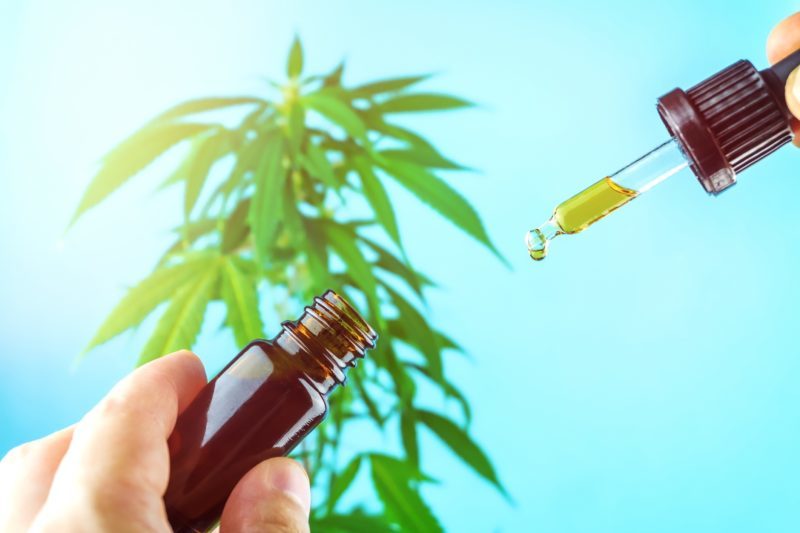FTC is taking action against six sellers of CBD-containing products for allegedly making scientifically unsupported claims about the products’ ability to treat health conditions ranging from hypertension to Alzheimer’s disease to cancer.
Each of the six companies—and the individuals behind them—are required to stop making unsupported health claims immediately, and to pay monetary judgments to the agency.
“The six settlements announced today send a clear message to the burgeoning CBD industry: Don’t make spurious health claims that are unsupported by medical science,” said Andrew Smith, Director of the FTC’s Bureau of Consumer Protection. “Otherwise, don’t be surprised if you hear from the FTC.”
The six companies are:
- Bionatrol Health, LLC, which, along with fellow Utah-based company Isle Revive, LLC, allegedly claimed without substantiation that their CBD product is safe for all users, treats pain better than prescription medications like OxyContin, and prevents and treats age-related cognitive decline. The companies and two former managers and owners also claimed without scientific evidence that CBD oil is “medically proven” to improve a variety of conditions. Additionally, FTC alleges that when consumers ordered one bottle of CBD oil, the companies changed the order to five bottles without consumers’ consent.
- Epichouse LLC—which operated under several names, including First Class Herbalist—is accused of promoting CBD as safe for all users, as able to treat pain better than prescription medications, and as able to prevent cancer, diabetes, and heart disease.
- CBD Meds, Inc., and G2 Hemp, Inc., have made a number of false claims, FTC alleges, including that CBD effectively treats, prevents, or mitigates artery blockage, cancer, glaucoma, autism, and schizophrenia. The companies also falsely said that some of the efficacy claims were scientifically proven or that the U.S. government has confirmed the health benefits of CBD.
- HempmeCBD has claimed that its CBD products could treat or cure ailments including cancer-related symptoms substance abuse, and AIDS, and FTC alleges that the company has falsely claimed to have studies showing CBD as a treatment for autism.
- Reef Industries, Inc.; Cannatera, Inc.; and AndHemp, Ltd., are being accused of misrepresenting the health benefits of CBD. FTC alleges that the three and the companies’ three principals have made claims that CBD can prevent, cure, mitigate, or treat diseases and conditions including Alzheimer’s disease, arthritis, autoimmune disease and irritable bowel syndrome.
- Steves Distributing, d/b/a Steve’s Goods, and the company’s CEO have claimed that their CBD and CBG products are effective alternatives to prescription medications and treat diseases and conditions including cancer and diabetes. FTC alleges that they claimed that their products have antibacterial properties prevent or reduce the risk of heart attacks, and that some of their claims were supported by scientific evidence.
Related: Senate Committee Requests USDA Ease Rules on Hemp Industry FDA Sends Warning Letter to Amazon Associate FTC Sends 35 More Letters to Companies With Unsubstantiated COVID-19 Claims
The Council for Responsible Nutrition (CRN) responded with a statement from Steve Mister, President & CEO, applauding this move. “CRN commends the FTC for taking action to protect consumers by calling out marketers making illegal and unsubstantiated scientific claims on cannabidiol (CBD) products. We remind industry that CBD when marketed as a supplement may not claim to treat, cure, prevent or mitigate any disease, and any claims must be substantiated with competent and reliable scientific evidence. CRN supports strong enforcement action from FDA and FTC against companies who market CBD products with illegal or unsubstantiated claims.”Mister added that part of protecting the public involves creating a legal pathway to market, to differentiate companies that work according to FDA regulations and create safe products from companies that don’t. “This recent announcement is another reminder to all of the need to establish a legal pathway to market for CBD dietary supplements. As consumer interest in CBD grows, more products continue to come to market. Many products come from responsible manufacturers that comply with federal regulations. However, these responsible products must compete with unsafe and illegal products from less reputable companies, some of which are poorly manufactured, make illegal disease claims, are improperly labeled or contain unsafe adulterants.”
Mister called on FDA to act on this matter and impose existing legal and regulatory requirements on CBD, noting that “That action—and that action alone—will allow the FDA and FTC to truly protect the consumer in this rapidly growing market.”










